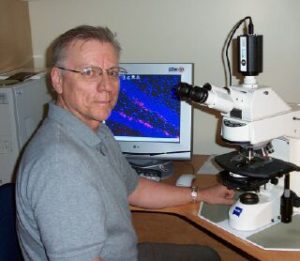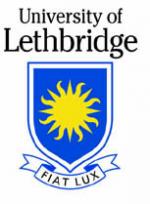Innovation Anthology #39: Project Leader, Research and Development

One of the world’s foremost researchers on memory and the hippocampus is Dr. Robert Sutherland, Director of the Canadian Centre for Behavioral Neuroscience at the University of Lethbridge.
The hippocampus is part of the cerebral cortex. It derives its name from the Greek words that describe its shape as a seahorse. And damage to the hippocampus from disease, trauma or drug abuse can lead to serious memory loss.
But Dr. Sutherland has found it may be possible to restore memory function by regenerating cells in the dentate granular layer of the hippocampus.
First he experimentally reduces the level of the hormone corticosterone to destroy the granule cells. Then the hormone is restored.
DR. ROBERT SUTHERLAND: The dogma was there are no neurons added to the adult brain. And recently it’s been discovered that that dogma is incorrect. So we’re stimulating the progenitor cells that are found in the hippocampus to replace the dentate granular cells that degenerated. And it turns out that the granular cells are one of the cell types that these progenitors can actually produce.
Dr. Sutherland’s research will hold great promise for people suffering from Alzheimer’s and other forms of memory loss.
Thanks today to The University of Lethbridge.
FOR INNOVATION ANTHOLOGY, I’M CHERYL CROUCHER
Guest
Stephanie Yanow, PhD,
ProvLab: Alberta Provincial Lab for Public Health, Edmonton, Alberta, Canada, s.yanow@provlab.ab.ca
Sponsor
University of Lethbridge
In 2007 The University of Lethbridge celebrated its 40th anniversary. The U of L campus is home to the world renowned Canadian Centre for Behavioral Neuroscience. The University is also a centre of expertise on water and remote sensing.
For more interviews with University of Lethbridge researchers, check out the website for Innovation Alberta. (2001-2008)

Program Date: 2007-06-12